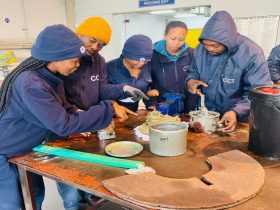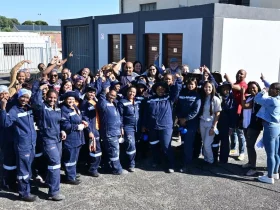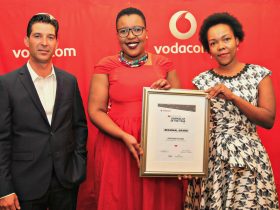National surveys suggest that several women started their informal businesses with social grants and stokvel income. Furthermore, about 77% use their net profit to purchase household items instead of ploughing into their businesses or bank accounts – possibly because 87% of them do not have one.
This information was garnered from the 2017 Survey of Employers and Self-Employed (SESE) and the 2020 – 2021 National Income Dynamics Study – Coronavirus Rapid Mobile Survey (NIDS-CRAM).
The rhetoric that small businesses are critical drivers for economic growth has become a woeful cliché. People are heeding the call to start businesses but face a myriad of challenges. Socio-economic circumstances play an enormous role. Poverty is possibly the reason surveyed informal business owners had no choice but to purchase essential household items with their profits instead of growing their business.
Current studies by the University of the Western Cape’s Economic Management Sciences (EMS) Faculty focus on entrepreneurship education. Researchers isolated three key obstacles for small business owners: financial exclusion, market entry as well as bureaucracy.
Government had put initiatives in place when we were in the heart of lockdown, like the loan guarantee scheme. However, banks still used criteria prior to lockdown to assess whether people would qualify for loans. Despite a recent reminder from President Cyril Ramaphosa that the government has worked hard to reduce bureaucracy to encourage entrepreneurship, there are still too many obstacles to, for example, obtaining licences to sell particular goods or even becoming VAT compliant.
And then there is the market entry migraine. Take major food retailers with the monopoly as an example. There are often underhanded goings-on, such as price fixing in this sector. Small businesses really don’t stand a chance of getting into that market, no matter how innovative or sound their offering may be. In 2006, the Western Cape government started The Red Door – “a one-stop-shop where SMMEs are able to access a single point to seek assistance”. But such projects are often not sustainable and do not necessarily connect with the real and everyday lived experiences and needs people face.
For this reason, during Women’s Month, the Faculty of EMS will host panel discussions to address these issues. The event will focus on working collaboratively with small business owners who have been left in the cold.
There will be a particular focus on women entrepreneurs and their ability to kick start a business idea or to get support, whether it is from investors or financial institutions. Women in the peri-urban or the rural parts of our country face even more challenges than women entrepreneurs in urban cities, with poverty levels being much higher in the rural parts of our country. According to StatsSA (2017), the poverty headcount is 81.3% compared to 40.7% in urban areas.
The SESE and NIDS-CRAM data found that close to 15% of women surveyed indicated that they started their business to survive or make ends meet, as opposed to 6% of men. While women are expected to contribute to putting food on the table, they still have to fulfil traditional roles and cannot afford to focus on their businesses as much as their male counterparts.
It is sad that businesses in emerging markets such as ours cannot afford to save for a rainy day such as a worldwide pandemic. Another panel will hone in on financial planning and start conversations about trying to create a culture of saving.
Panellists will include successful business owners, government officials, and entrepreneurs who will share their expertise. But the event is also a platform for like-minded business people to network and share how to identify a gap in the market, convince potential investors, get their foot into that lucrative supply chain and add value to a specific sector. It is time for everyone to collaborate to contribute toward the elusive economic growth of this country.
























Leave a Reply